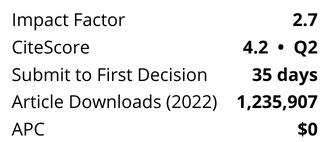A catalytic system for the generation of H2O2 from formic acid and oxygen at ambient conditions has been developed. Pd-supported catalysts (Pd/C, Pd/TiO2 and Pd/Al2O3) have been tested, showing that for bulk purposes Pd/Al2O3 is more favourable while for in-situ applications Pd/TiO2 seems to be preferable. However, when these catalysts were tested in the in-situ H2O2 generation for the oxidation of phenol by means of the Fenton process (in the presence of ferrous ion), Pd/TiO2 did not demonstrate the expected results, whereas Pd/Al2O3 showed to be an efficient catalyst. Therefore, Pd/Al2O3 is offered as a good catalyst for Fenton's reactions with in-situ generated H2O2. In order to optimize the operating cost of the process, different initial concentrations of formic acid have been tested with Pd/Al2O3, and it has been seen that lowering the initial amount of formic acid favours the efficiency of the process. The effect of the addition of a second metallic (Pt, Au, Fe, Cu) active phase was studied. Concerning H2O2 generation, best results were obtained with a Pd-Au catalyst for bulk production (long time) while for in-situ application Pd-Fe showed interesting results. The Pd-Fe catalyst also performed similarly to the semi-heterogeneous Fenton system involving Pd/Al2O3 and ferrous ion in the degradation of phenol. Therefore, Pd-Fe catalyst offered an interesting prospect for making a full heterogeneous catalyst for Fenton reaction involving in-situ generation of H2O2
Skip Nav Destination
Article navigation
Research Article|
May 01 2011
Effect of support and second metal in catalytic in-situ generation of hydrogen peroxide by Pd-supported catalysts: application in the removal of organic pollutants by means of the Fenton process
S. Contreras;
1Departament d'Enginyeria Química Universitat Rovira i Virgili, Avda. Països Catalans, 26, Campus Sescelades, Tarragona 43007, Spain
E-mail: sandra.contreras@urv.cat
Search for other works by this author on:
M. S. Yalfani;
M. S. Yalfani
1Departament d'Enginyeria Química Universitat Rovira i Virgili, Avda. Països Catalans, 26, Campus Sescelades, Tarragona 43007, Spain
Search for other works by this author on:
F. Medina;
F. Medina
1Departament d'Enginyeria Química Universitat Rovira i Virgili, Avda. Països Catalans, 26, Campus Sescelades, Tarragona 43007, Spain
Search for other works by this author on:
J. E. Sueiras
J. E. Sueiras
1Departament d'Enginyeria Química Universitat Rovira i Virgili, Avda. Països Catalans, 26, Campus Sescelades, Tarragona 43007, Spain
Search for other works by this author on:
Water Sci Technol (2011) 63 (9): 2017–2024.
Citation
S. Contreras, M. S. Yalfani, F. Medina, J. E. Sueiras; Effect of support and second metal in catalytic in-situ generation of hydrogen peroxide by Pd-supported catalysts: application in the removal of organic pollutants by means of the Fenton process. Water Sci Technol 1 May 2011; 63 (9): 2017–2024. doi: https://doi.org/10.2166/wst.2011.452
Download citation file:
Sign in
Don't already have an account? Register
Client Account
You could not be signed in. Please check your email address / username and password and try again.
Could not validate captcha. Please try again.
eBook
Pay-Per-View Access
$38.00




%20cropped.png?versionId=5945)